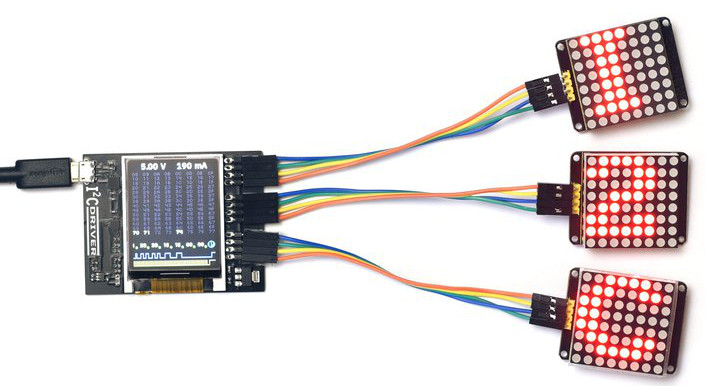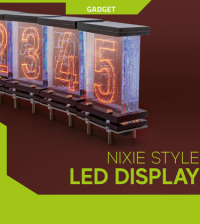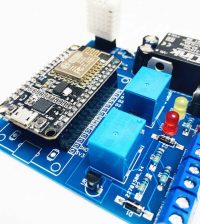- How to Adjust X and Y Axis Scale in Arduino Serial Plotter (No Extra Software Needed)Posted 4 months ago
- Elettronici Entusiasti: Inspiring Makers at Maker Faire Rome 2024Posted 4 months ago
- makeITcircular 2024 content launched – Part of Maker Faire Rome 2024Posted 6 months ago
- Application For Maker Faire Rome 2024: Deadline June 20thPosted 8 months ago
- Building a 3D Digital Clock with ArduinoPosted 1 year ago
- Creating a controller for Minecraft with realistic body movements using ArduinoPosted 1 year ago
- Snowflake with ArduinoPosted 1 year ago
- Holographic Christmas TreePosted 1 year ago
- Segstick: Build Your Own Self-Balancing Vehicle in Just 2 Days with ArduinoPosted 1 year ago
- ZSWatch: An Open-Source Smartwatch Project Based on the Zephyr Operating SystemPosted 1 year ago
I²CDriver: the Open Source Tool for Controlling I²C Devices

I²CDriver is an easy-to-use, open-source tool for controlling I²C devices. It works with Windows, Mac, and Linux and has a built-in color screen that shows a live “dashboard” of all the I²C activity. The 61 x 49mm board is equipped with a Silicon Labs EFM8 controller and an FTDI USB serial chip to connect devices to a PC via a micro-USB connection, so no special drivers need to be installed. The board includes a separate 3.3-V supply with voltage and current monitoring.
While other I²C tools might offer a couple of LEDs, I²CDriver has a clear logic-analyzer display of the signal lines plus a graphical decoding of the I²C traffic.
In addition, it continuously displays an address map of all attached I²C devices, so as you connect a device, it lights up on the map.
Excamera Labs has surpassed its Crowd Supply goals for three versions of the I²CDriver, all scheduled for shipment on Feb. 5, 2019. The $29 I²CDriver Core model is limited to 3x sets of hookup jumpers. The $61 I2CDriver Expert adds support for 16x I2C modules and 3x module carrier boards. The $79 I²CDriver Gold advances to 20x I²C modules and 4x carriers and gives you a custom USB serial ID.
Features
- Open hardware: the design, firmware and all tools are under BSD license
- Live display: shows you exactly what it’s doing all the time
- Fast transfer: sustained I²C transfers at 400 and 100 kHz
- USB power monitoring: USB line voltage monitor to detect supply problems, to 0.01 V
- Target power monitoring: target device high-side current measurement, to 5 mA
- I²C pullups: programmable I²C pullup resistors, with automatic tuning
- Three I²C ports: three identical I²C ports, each with power and I²C signals
- Jumpers: color coded jumpers included in each pledge level
- 3.3 output: output levels are 3.3 V, all are 5 V tolerant
- Supports all I²C features: 7- and 10-bit I²C addressing, clock stretching, bus arbitration
- Sturdy componentry: uses an FTDI USB serial adapter, and Silicon Labs automotive-grade EFM8 controller
- Usage reporting: reports uptime, temperature, and running CRC of all traffic
- Flexible control: GUI, command-line, C/C++, and Python 2/3 host software provided for Windows, Mac, and Linux
Specifications
- Maximum power out current: up to 470 mA
- Device current: up to 25 mA
- Dimensions: 61 mm x 49 mm x 6 mm
- Computer interface: USB 2.0, micro USB connector















